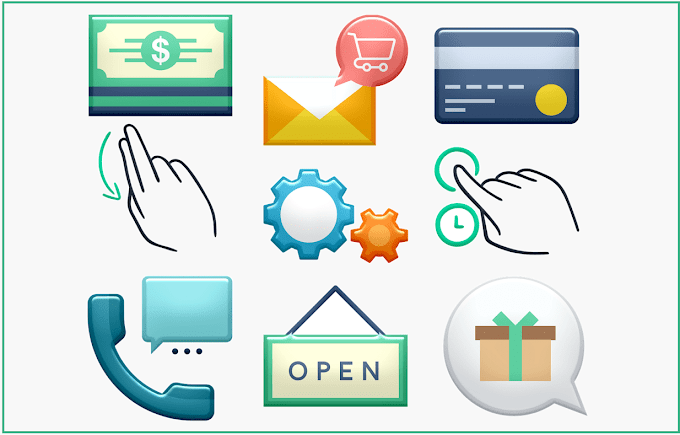
Artificial intelligence has had a profound impact on the world around us, shaping the way we work, entertain ourselves, and otherwise go about our lives. One industry that AI is really transforming is healthcare. In 2019, the global healthcare market was valued at $2.4 billion and is projected to reach $31.02 billion in 2025. AI is able to analyze complex data, improving patient outcomes by advancing treatment techniques. Here are four ways that AI is revolutionizing healthcare.
Helping diagnose patients
AI helps diagnose patients by analyzing symptoms and crafting personalized treatments using precision medicine, medical imaging, intelligent symptom checkers, and smartphones. AI can analyze symptoms faster than some human healthcare providers and, in some cases, has the capacity to reach more accurate conclusions. In a 2017 study published in JAMA, researchers found that seven of 32 deep learning algorithms were able to diagnose lymph node metastases more accurately than a panel of 11 pathologists.
Deep learning models have the ability to analyze massive amounts of data that provide more robust and precise results for doctors and patients. This data—which can include information about a patient’s genetic content, other molecular/cellular analysis, and lifestyle factors—can more accurately predict risk for cardiovascular and other diseases.
Machine learning (ML) algorithms teach computers to find patterns, a skill that contributes greatly to diagnosing patients with increasing accuracy. Medical imaging utilizes AI’s ability to recognize patterns to advance the diagnostic process, replacing the need for tissue samples with “virtual biopsies.”
Intelligent symptom checkers provide patients with user-friendly chatbots that can help to identify what’s wrong and offer guidance. Smartphones are also user-friendly, and can be transformed into diagnostic tools. For example, the combination of smartphones and AI can provide accessible remote eye exams.

Advancing treatment
AI has advanced treatment through the use of technology such as clinical decision support systems (CDSSs) and brain-computer interfaces, applying such technology to areas, such as drug development.
Clinical decision support systems (CDSSs) analyze past, current, and new patient data to help healthcare professions make better, data-driven decisions. These decisions can include dosage quantities and diagnoses, and can be influenced by information such as patient allergies.
Brain-computer interfaces translate brain signals into commands and relay them to a device, and can be used to restore patients’ ability to speak and move. Such technology could improve quality of life for a range of patients, from those who have limited abilities to those who have completely lost these abilities.
AI technology’s ability to analyze large quantities of data enables it to reduce the time and cost for research. This facilitates drug development by pinpointing what compounds researchers should further explore. Additionally, AI makes virtual clinical trials possible, cutting the costs of conducting trials as well as reducing patient burden.
Improving patient engagement
Care plans are only effective if they are being followed by patients. The AI that powers wearables and personal devices can improve patient adherence to treatment plans, maximizing the efficacy of the treatment. Wearables and personal devices usually accompany patients all the time, wherever they go, making them ideal for reminding patients to take medication and make health-conscious choices. These devices can also collect and analyze key data about individuals that contribute to research on population health factors.
Another AI technology that improves patient engagement is the patient self-service model. This model empowers patients to take control of their own health by implementing natural language processing tools. These tools simplify and improve the care process by providing patients with a convenient online portal that is accessible by portable devices.

Supporting administrative processes
AI can also streamline the administrative and operational workflow of healthcare systems through automation. Time consuming tasks that are being expedited by AI include clinical documentation and claims management.
One of the leading causes of lost productivity for physicians is clinical documentation—recording notes and reviewing medical records in electronic health records takes up 34 to 55 percent of physicians’ time. AI uses natural language processing to lessen this burden, allowing healthcare providers to devote time to more important responsibilities.
Evaluating health insurance claims without AI can take days or even months, but using AI the process can take seconds. Using AI to automate the evaluation of claims is valuable because 80% of healthcare claims are flagged by insurers as incorrect or fraudulent.
AI is a valuable and powerful resource that has revolutionized the healthcare industry by assisting in patient diagnosis, advancing treatment, boosting patient engagement and streamlining administrative processes. The improvements that AI has brought to healthcare have enhanced the healthcare experience for both patients and doctors. AI equips doctors to deliver faster, more accurate and more personalized treatment to patients.
Check out the visual below from the University of St.Augustine for Health Sciences to learn more about how AI is revolutionizing healthcare.





![Performance Marketing - What Is it & How It Works [+ 6 Tools You Can Use]](https://blogger.googleusercontent.com/img/b/R29vZ2xl/AVvXsEj0akcIPU36HHfqWoYrb2LCMNG8OvxPb9drUYKWJZvSXmfbJG0OrjN5jfzTFDmT-9MKcuZt-G-66PiLlIVjgX1DwCNzHeIMW0pjW7W3IB2rZYzx4ISbL2T6JC4M38eubqHxQ3e71l2_n7oxh2f2QdV3d1prJ6z9HQNsSyfjtO18diLxEZg-5wD-I6RINFY/w680/performance_marketing-min.png)





0 Comments